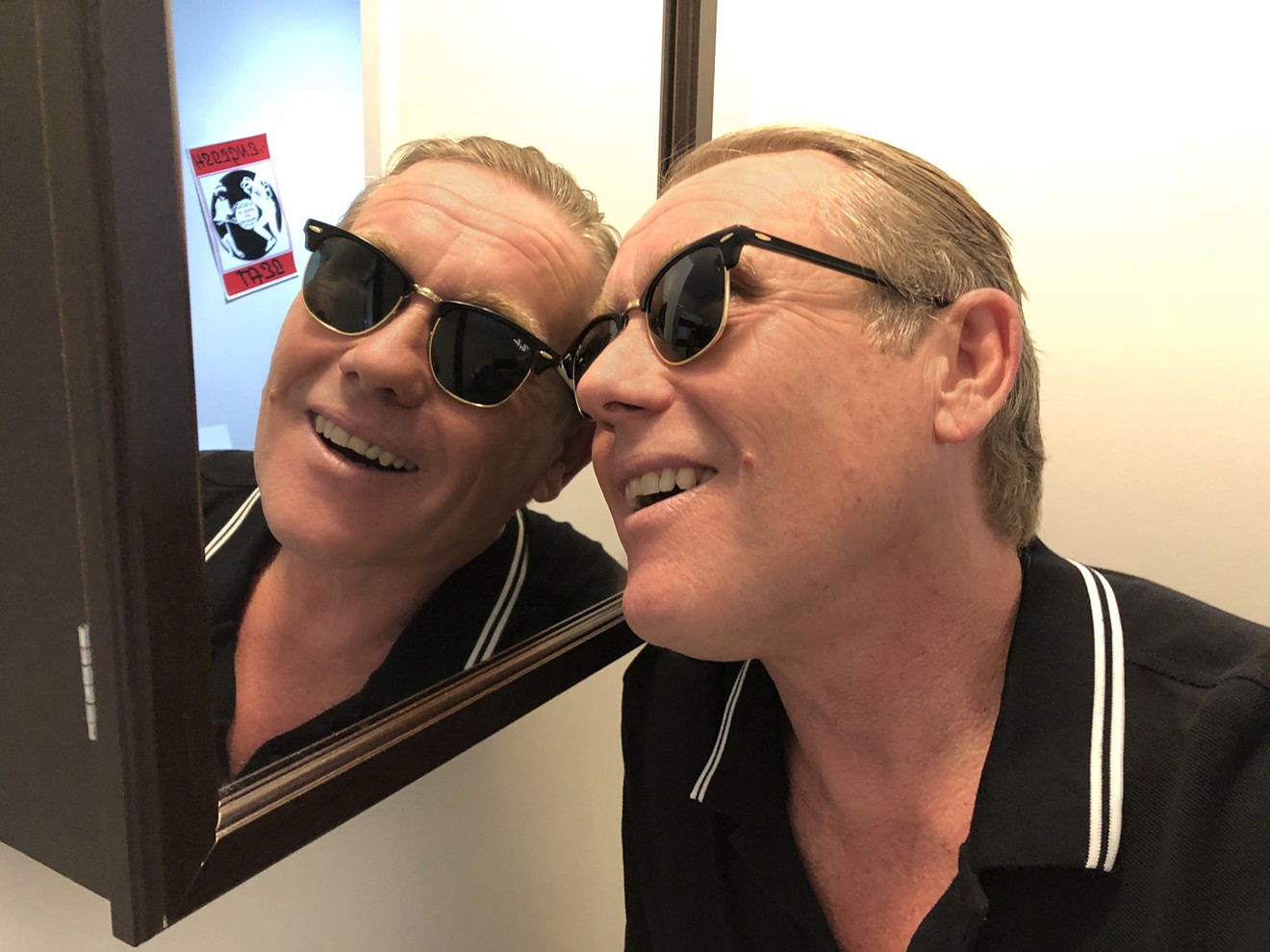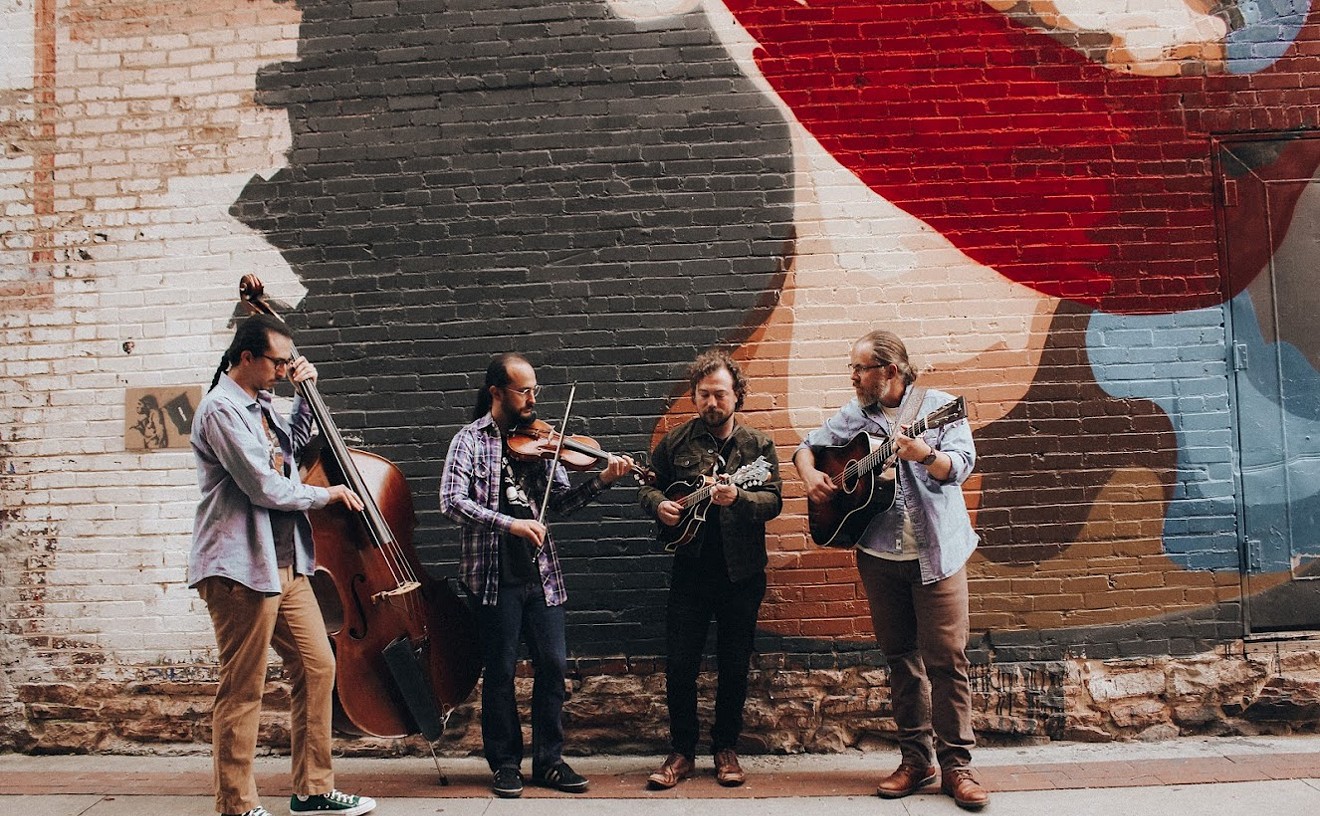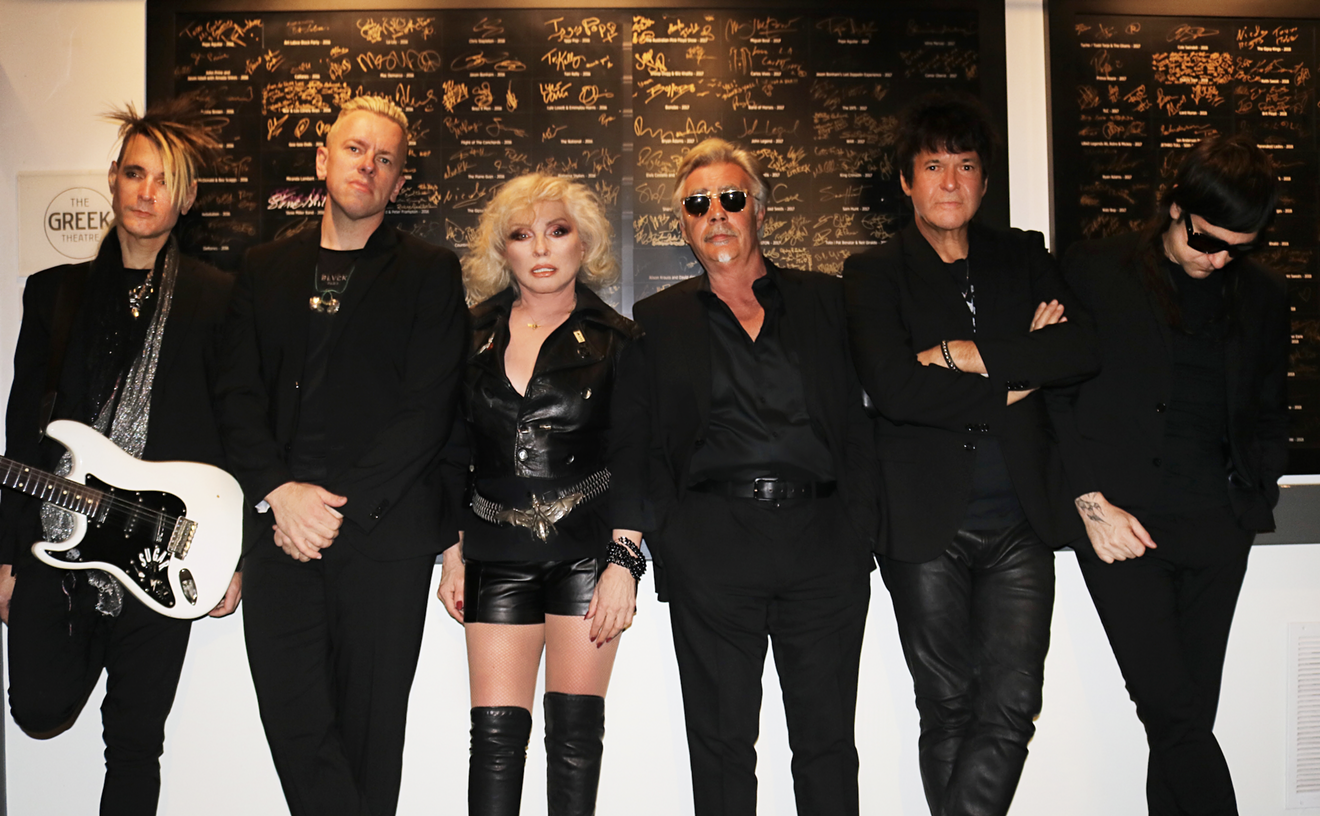Dave Wakeling, who has fronted ska/reggae/rock band the English Beat for four decades, was recently talking to a friend who was about to retire from his job as a policeman in New York. They were talking about how people tend to get more conservative as they get older, and Wakeling recalls the cop saying, “You can’t get out of the way as quick.”
“He said that’s what makes people get conservative,” Wakeling says. “Even if you’re just talking in the streets, he said if something’s going to go off or if somebody’s going to pull a gun, you can’t get out of the way anymore. So you get more scared, so you get more conservative. And you don’t want anything to happen to make someone crack up. You’d need to jump over a wall or over a fence to get out of the way, and you can’t do that.”
The 62-year-old Wakeling doesn’t seem to necessarily be getting less conservative with his songwriting on the brand-new release Here We Go Love, the English Beat’s first album since 1982’s Special Beat Service, which contained one of the band’s staples, “Save It for Later.” Wakeling doesn’t shy away from being blunt on the new song “If Killing Worked,” which contains the chorus “If killing worked, it would have worked by now” and the verse, “We’re all grunts in the human army/Four million at war and one billion starving/Sick to death of those old boys' rules/We’ll make our future or we’ll die like fools.”
While Wakeling delves into some heavy material on “If Killing Worked,” the music is bright and catchy.
“It’s a catchy way of saying something that everybody grasps for and dreams of: peace in our time,” Wakeling says. “I think people of my generation, in our sixties, think, ‘Man, how did that happen?’ I guess the only thing worse is not making it to sixty. I’ve been to a lot of funerals. I think people who saw the hippie revolution and the punk revolution expected that the larger nations were going to leave the world in a better and a safer state than our parents have. I think people are coming quite surprised and are perhaps disappointed that it doesn’t necessarily seem as though that’s the case.”
Wakeling says that during the time he and the band made Here We Go Love, current events mirrored what was going on when the English Beat started out in England in the late ’70s.
“All of a sudden, everybody’s on high alert about China and Russia and nuclear war and Iran and nuclear war,” he says. “It’s all the same sort of fear. It’s not specific. Nobody’s saying anybody’s going to do anything, but we’re all standing on our tiptoes. ... All of a sudden, it seems like health care and education are incredibly difficult.”
“I’m always interested as a songwriter, because you watch on the TV, and out of the corner of your eye, certain things going on in the world can inspire a song. So I keep a keen eye on things. And the similarities to the late ‘70s are remarkable.”
Wakeling, who has lived in California for the past 32 years, says he was more altruistic during the first half of his songwriting life, when things were more black and white.
These days, “it’s just endless shades of gray,” he says. “Endless shades of nuance. The things that were really powerful and strong and important one minute are fairly negligible the next.”
The seeds of Here We Go Love were planted a few years ago, when Wakeling started adding new songs into the band’s live sets and fans started asking people working the merch booth if they could buy a CD with the new songs on it. Thanks to crowdfunding through PledgeMusic, Wakeling and crew got to work on the new album, which was released last month, with producer Kyle Hoffmann and engineer Jay Baumgardner.
“Jay tried to do it so it sounded like the Beat, but it also sounded like something brand-new that we’d want to hear on the radio,” Wakeling says. “It took a while, but he kind of nailed it. The response is exactly what we’d hope for, really. It came down nicely for radio. People say it sounds fresh, it sounds enthusiastic, it sounds focused and it’s got a depth to it.”
The English Beat, with King Schascha, 8 p.m. Sunday, July 15, Gothic Theatre, Englewood, 303-789-9206, $26.50-$29.
[
{
"name": "Air - MediumRectangle - Inline Content - Mobile Display Size",
"component": "12017618",
"insertPoint": "2",
"requiredCountToDisplay": "2"
},{
"name": "Editor Picks",
"component": "17242653",
"insertPoint": "4",
"requiredCountToDisplay": "1"
},{
"name": "Inline Links",
"component": "18838239",
"insertPoint": "8th",
"startingPoint": 8,
"requiredCountToDisplay": "7",
"maxInsertions": 25
},{
"name": "Air - MediumRectangle - Combo - Inline Content",
"component": "17261320",
"insertPoint": "8th",
"startingPoint": 8,
"requiredCountToDisplay": "7",
"maxInsertions": 25
},{
"name": "Inline Links",
"component": "18838239",
"insertPoint": "8th",
"startingPoint": 12,
"requiredCountToDisplay": "11",
"maxInsertions": 25
},{
"name": "Air - Leaderboard Tower - Combo - Inline Content",
"component": "17261321",
"insertPoint": "8th",
"startingPoint": 12,
"requiredCountToDisplay": "11",
"maxInsertions": 25
}
]












